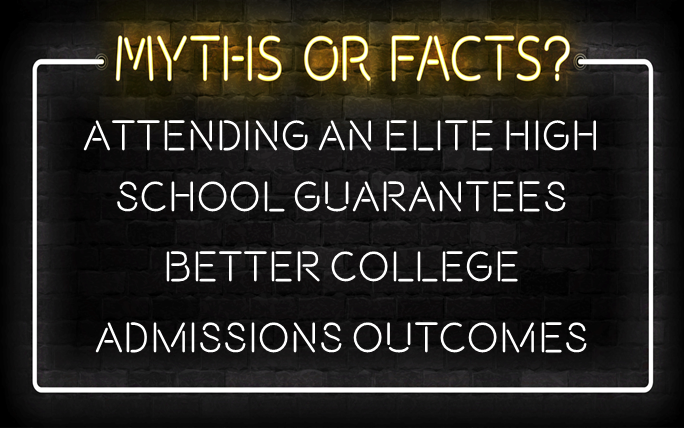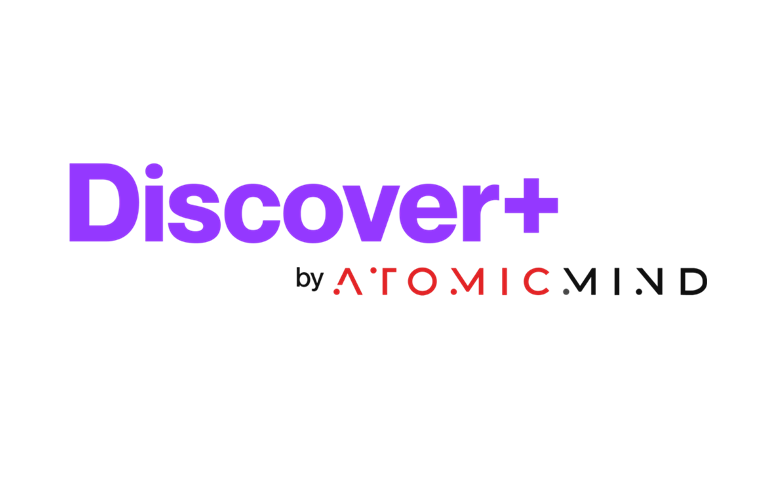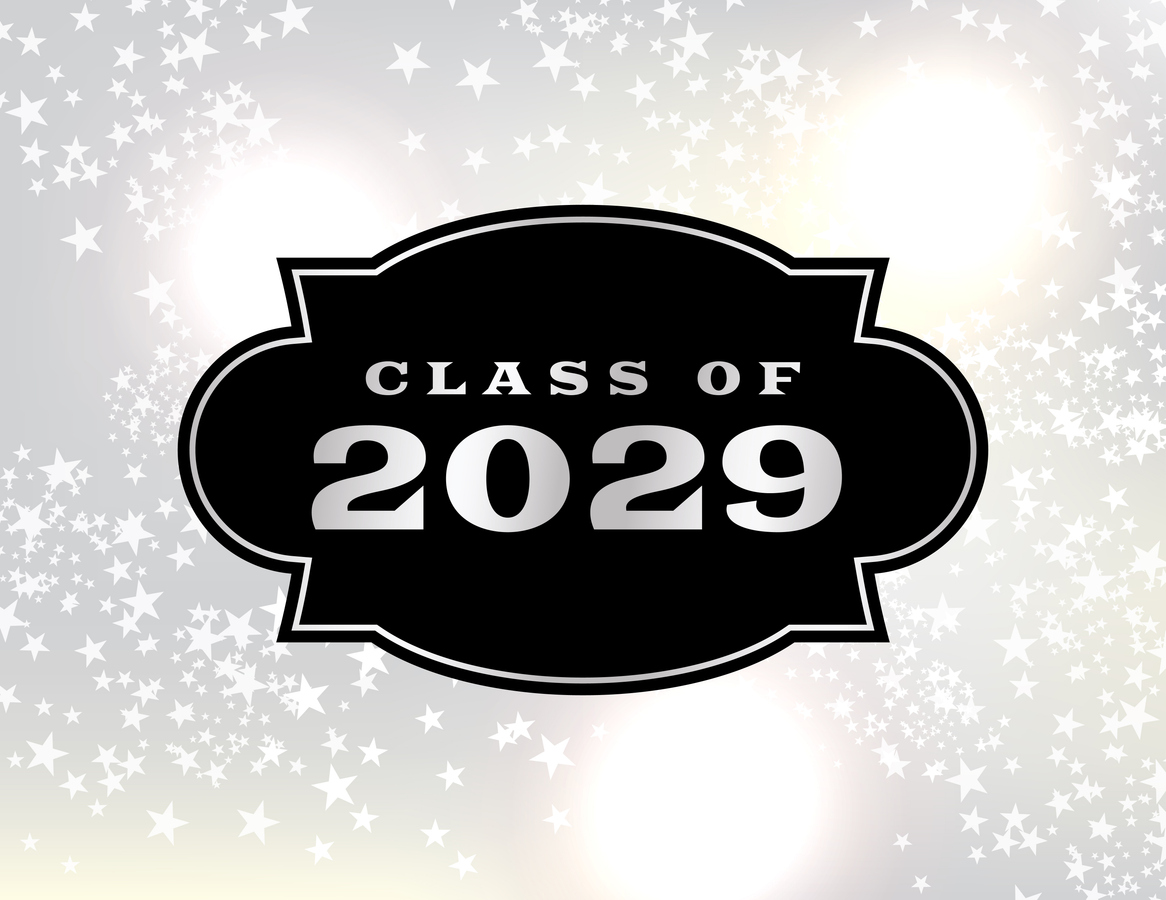
Real Talk #5: Myths in College Admissions
By
AtomicMind Staff
August 13, 2025
•
2
min read
Share this Article
Simply highlight text to share on social or email
Myth: Attending an Elite High School Guarantees Better College Admissions Outcomes
(Spoiler: It’s more nuanced than that.)
At first glance, it might feel like attending a top private or boarding school gives your application a major edge. After all, these schools frequently send dozens of graduates to selective colleges. For example:
- Phillips Academy Andover sent approximately 50 students to Ivy League schools last year alone (out of only 324 students)
- Choate Rosemary Hall had 206 graduates enroll at Ivy Leagues in the past 5 years
- The Lawrenceville School reported approximately 245 students heading to Ivy League institutions between 2020–2024
For many families, these numbers suggest a clear takeaway: enrolling in an elite high school must boost your chances of getting into a top college. At first glance, this thought makes sense. Elite high schools often have more qualified teachers, better facilities, connections, and skilled guidance counselors who are more aware of the expectations for elite college admissions.
The result? A booming industry of consultants, early prep programs, and frenzied competition for admissions into K–12 private schools like Dalton, Chapin, Exeter, and Andover.
And even though, at AtomicMind, we are here to help you get into an elite high school if that is your choice, this isn’t always what we recommend. Because here’s the truth: elite high schools offer real advantages, but no guarantees. In fact, they can complicate your admissions profile just as much as they can enhance it.
Let’s unpack the facts.
The Upside: Resources, Rigor, and a Track Record
Elite high schools do offer unique advantages:
- Top-tier academics and small class sizes mean students often have access to APs, advanced electives, and individualized instruction.
- Robust counseling offices understand the nuances of elite college admissions, including how to build balanced lists and craft strong essays.
- Wealth of extracurricular resources: Whether you’re interested in astrophysics, chamber music, or robotics, private schools often provide in-house programs, top-tier facilities, and dedicated faculty mentorship.
And yes, some top private schools have long-standing relationships with selective colleges. Many were historically designed as feeder institutions for the Ivy League. Phillips Exeter, for example, was established with guidance from Yale’s president; Lawrenceville was built to prepare students for Princeton.
Admissions officers know these schools. They understand their curricula. They trust that students coming from these institutions are well-prepared for college-level work.
The Tradeoff: A More Competitive Applicant Pool
But here’s the flip side. Students applying to college aren’t evaluated in a vacuum; they’re being reviewed in context. And if that context includes elite faculty, small class sizes, and millions of dollars in school funding, colleges expect a higher bar.
In other words, you’re not necessarily being evaluated as an individual, but with an understanding of where you come from. Thus, college admissions officers ask: “Given the resources this student had, what did they do with them?”
If you attend a school where multiple classmates are applying to the Ivies, top STEM competitions are the norm, and everyone has access to research labs or nonprofit seed funding—then simply having those experiences won’t set you apart from your peers at your own institution or others like it. You’ll need to distinguish yourself through originality, depth, and leadership.
What About Public School Students?
While private schools may offer more access, public school students are not at a disadvantage—especially when they make the most of what’s available to them. A student from a small-town public high school who starts a peer tutoring program, wins regional science fairs, or writes for the local newspaper may stand out more than a student at an elite school with similar stats but more institutional support.
Admissions officers value contextual excellence, not privilege. If your school doesn’t offer AP courses, they won’t expect you to have taken 12. What they want to see is curiosity, initiative, and impact—wherever you are.
That said, attending a public school might mean (but not necessarily), having a less rigorous academic curriculum, which might put a student at a slight disadvantage once enrolled in college. AtomicMind Head Advisor, Dylan Rivera, recalls a steep learning curve when he arrived at Stanford University: “In my humanities classes, my peers coming from private schools had a broader knowledge of literary history and classics than I did, coming from a public school; in my mathematics classes, I was used to problem solving, but not abstract proofs, whereas those coming from elite high schools had often taken these exact courses before.”
So, Should You Choose an Elite High School?
It depends.
Ask yourself:
- Will I thrive in a high-pressure academic setting?
- Will I use the available resources to deepen my interests?
- Do I want to be in a place where competition is high and expectations are higher?
For some students, elite private schools are a launching pad. For others, they can be overwhelming or limiting. Fit matters more than brand name.
Final Verdict: The School Doesn’t Make the Student
Ultimately, what you do during high school carries far more weight than where you attend. Top colleges are looking for:
- Academic initiative
- Intellectual curiosity
- Real-world impact
- Self-awareness and growth
You can demonstrate all of these from any school—with the right strategy, support, and mindset. The final verdict: great students will get an excellent education anywhere, whether that be a public or private high school, or colleges across the board. That said, it is, understandably, easier to get a better education at a more competitive school, given the privileges that come with it.
Need Help Standing Out—Wherever You Are?
At AtomicMind, we help students across the country develop competitive, meaningful college applications. Whether you’re at a prestigious boarding school or a small public high school, our team of expert advisors can help you build a unique narrative, leverage your resources, and shine through your essays, activities, and interviews.
Let’s turn your environment into an asset—and your story into a standout application.

Share this Article



